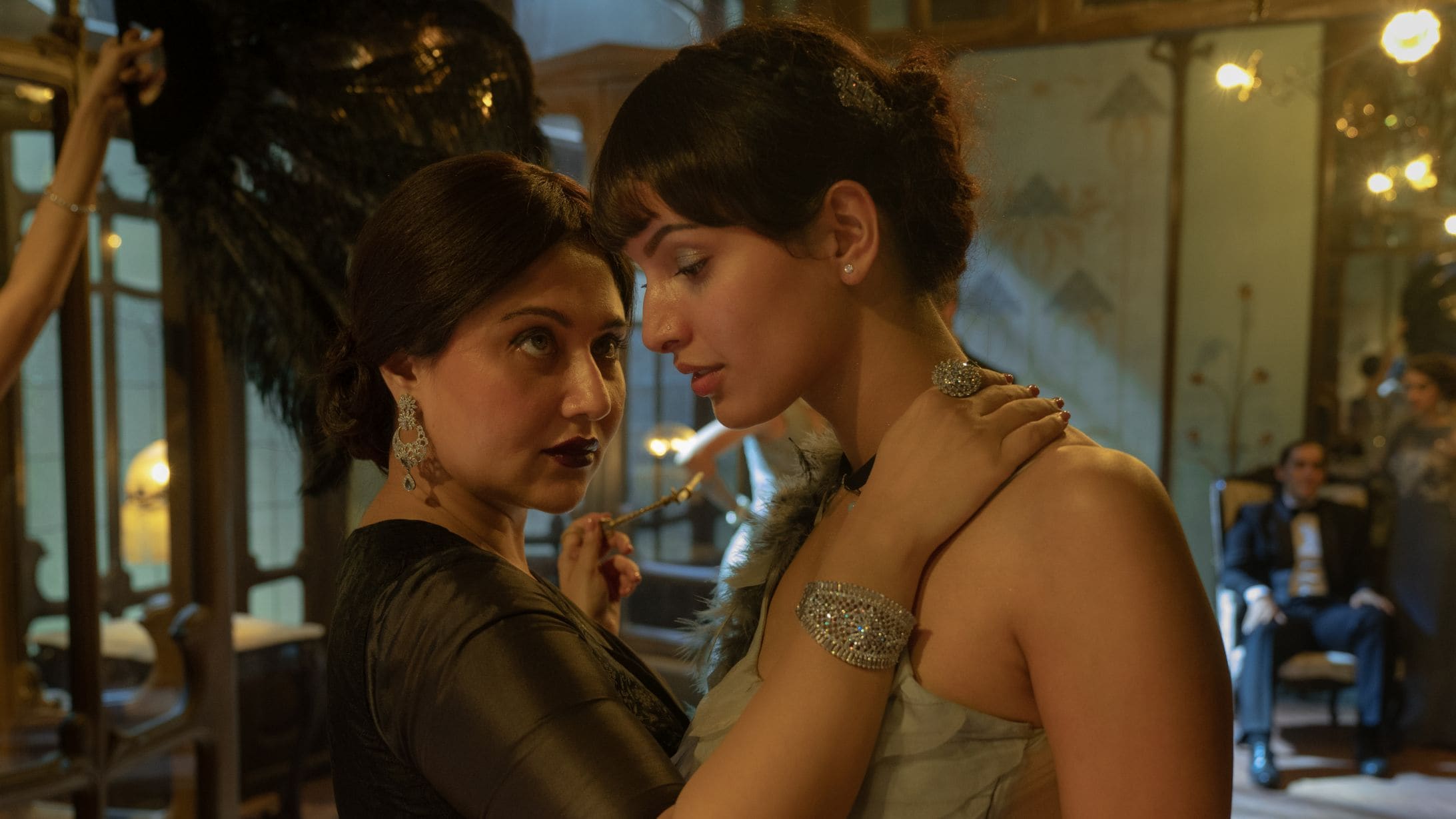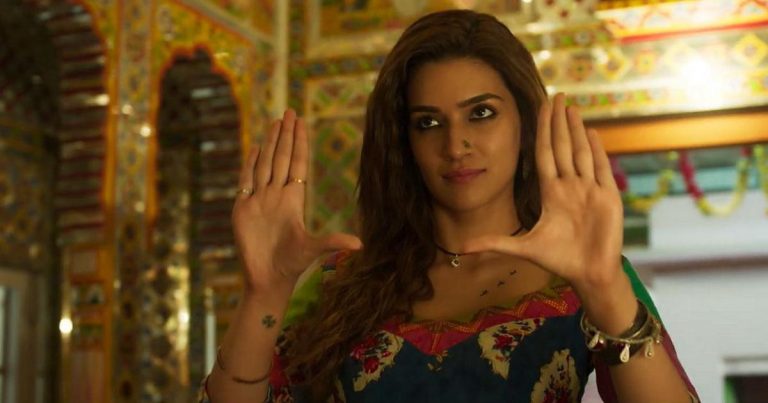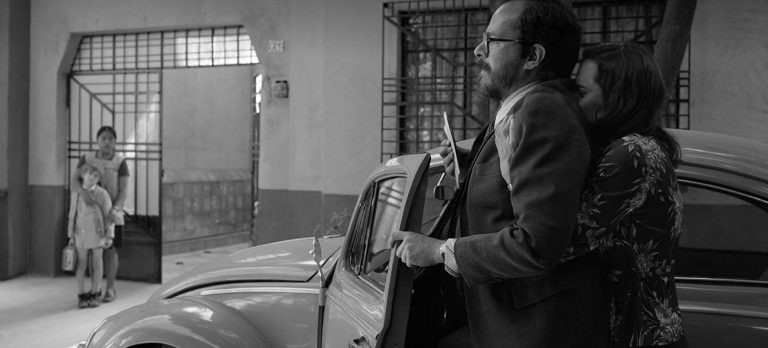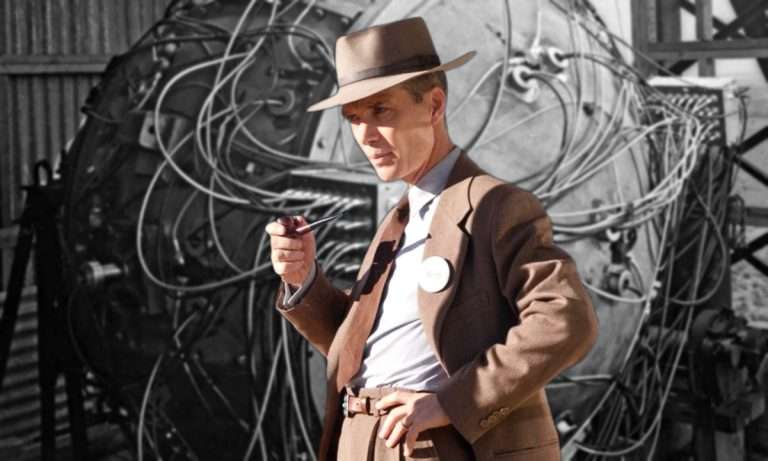Qala (2022): The Anatomy of Guilt: In human behavioral psychology, one of the first responses we yearn for and receive is that of the mother’s validation. Geared towards this positive response, we learn a lot about the world and ourselves during our initial years. A wide range of factors influences our response to the world as we grow older and gain more experiences. In Qala’s case, however, having her mother’s approval seemed to be the driving force throughout. This immense need for her mother’s approval and affection, and the lack thereof, creates a girl who grew up reaching for something she could never grasp. Even her artistic pursuit, when boiled down, seemed to be yet another attempt to please her mother.
We’ve seen a few mother-daughter relationships on screen that highlight how this dynamic is vulnerable to ricocheting trauma and hurt. For instance, the guilt and manipulation factor highlighted in The Lost Daughter or the unresolved trauma in Russian Doll and how it is passed down three generations of women like DNA. In Anvitta Dutt’s Qala, we see Urmila (Swastika Mukherjee), far too scarred by life to start motherhood with a clean slate. Depression can leave a person to be a ghost of themselves. It handicaps you with a phantom limb of what you used to be. But unfortunately, the way of life doesn’t give a depressed mother the same leeway.
We know that Urmila lost her husband, her newborn, and her art. Usually, we’d sympathize and understand how that situation would be cruel enough to crush a person. Yet, we spare her no mercy. We perceive her approach towards Qala (Tripti Dimri) as selfish and sadistic in nature. This film exposes the immense psychological power a mother has over a child. Qala is constantly met with emotional neglect or psychological abuse by her mother. Nevertheless, Qala persistently eggs on her mother to be let in. She’s ferociously fighting for a place in her mother’s life. Urmila gives in just about enough to help Qala keep up her fight, but she gives in from a hauntingly empty vessel within her, which affects them both for the worse.
Even as a successful adult with the world’s admiration at her feet, Qala is desperately reaching out to her mother and mumbling for help. Not having a reliable parental figure all her life, Qala’s needs seem to invoke a protective response in people that wish her well. Naseeban Appa and Sudha, the secretary, were almost maternally protective towards her. Nothing, however, could fill the void left by her mother’s absence. It’s as if she thought success was the key to her mother’s heart, but when success didn’t produce the desired results, it all became too much for her. The deep guilt and negative self-image that Qala was nurturing led to a severe case of imposter syndrome in her. Sure, Qala had other reasons to feel overwhelmed by her actions. But, ironically, the misplaced guilt Urmila instilled in her throughout her life led to those actions in the first place.
Her guilt, like the motif of the mercurial moth, shows up at different points of the story. We’ve seen moths used as an important agent of storytelling in movies like The Silence of the Lambs and even The Lord of the Rings. Moths have often represented transformation, death, mystery, forewarning, etc. But here, the moth marks a very personal journey of Qala vis-a-vis her guilt. The moth is initially understated and small in the shape of her earrings during her years in Himachal. The moth is also in the shape of Urmila’s brooch, the object of envy that is presented to Jagan.
We later see the moth in the drape of her sarees during her initial days in Calcutta; as a lingering, a peripheral reminder of her guilt. Further, during the solitary frame of Qala watching her reflection, the moth shows up with the recurring composition of a haunting memory from Qala’s past; this marks the precipice of the symbolism of the moth. Towards the end, we see the moth, the biggest in size, creeping up in design on the shoulder of her blouse, ready to attack.

The film, rightly titled, explores the inner world of Qala. The recurring image of the gargoyles, the overcast evening near a Howrah bridge in construction, the blurry memory of the party, and the changing hues of gray she saw snow in, all of it was a process towards the final hallucination that occurred at the studio. The representation of the environment in the film was always a correlational representation of her state of mind.
However, there are a few indications in the film which give us thoughts on a different perspective of the same story. Jagan, who is a very mystic presence in the film, lets us in on his possible version of the story. When Qala finds him sitting in her secret spot inside the closet, it feels like he’s trying to convey that he already knows her secrets. We’ve seen him be affectionate towards her throughout the film. He genuinely has compassion for her. We know that he is not unaware of the fact that he swept into Qala’s life and took a place in Urmila’s heart that Qala was fighting for.
There is a sedimented awareness and guilt about this, but the exposure to a whole new world and the possibilities of it make Jagan focus on his goal over the means of it. He was selfish, but any artist with a dream would be. The night he cries and assures Qala that things are going to be better the next day, he leaves the brooch for her as a parting gift. It is hard to believe he didn’t know Qala’s secret because he seemed surrendered to and hurt by it. Their story comes full circle, starting in the middle of a maze in the garden and ending with a maze on the game he gives her.
After this, Urmila, too, seems affirmed in her anger towards Qala. She even accuses her of stealing what’s not hers. For Urmila, Qala was selfish towards her dead twin, towards Jagan, and towards Urmila herself. For Qala, though, it was just a fight for what she believed was hers all along. Urmila had a storm blowing right under the thin membrane of her soft demeanor, the only thing to disturb this seemed to be her own daughter. Qala grew up with this thundercloud over her head, afraid of every breath she took upsetting her mother.
Urmila instills guilt and fear in Qala, which becomes her entire world, her two opposing moral compasses that cause her to act in extremes and never allow for balance in herself. So ultimately, you don’t really blame Qala for allowing her primitive instincts to take over in an attempt to keep her world the same as she knew it. It exposes the bias in human needs really, that at our weakest moments, we choose toxic familiarity over the difficulty of starting over.




![Monica, O My Darling [2022] Review – Vasan Bala’s Nostalgia-induced mystery is a rambling mixed bag](https://79468c92.delivery.rocketcdn.me/wp-content/uploads/2022/11/Monica-O-My-Darling-2022-Netflix-Movie-Review-1-768x456.jpg)

